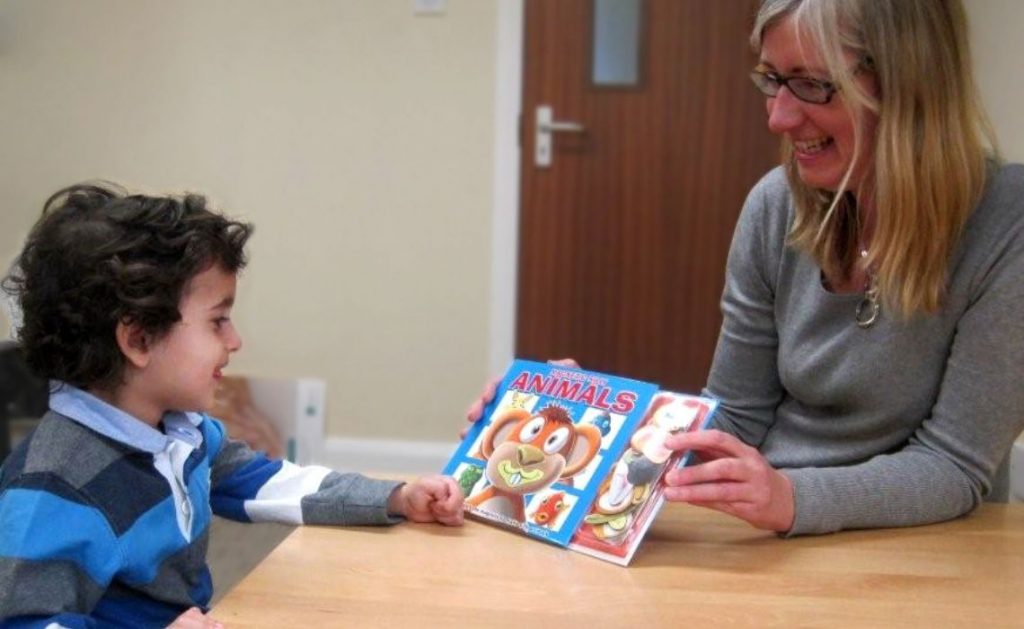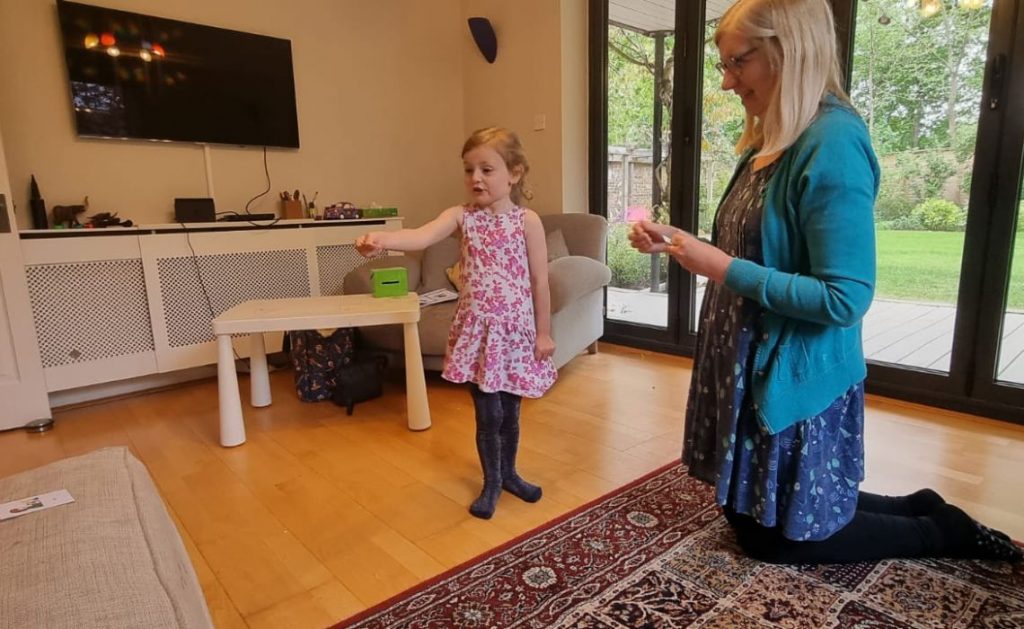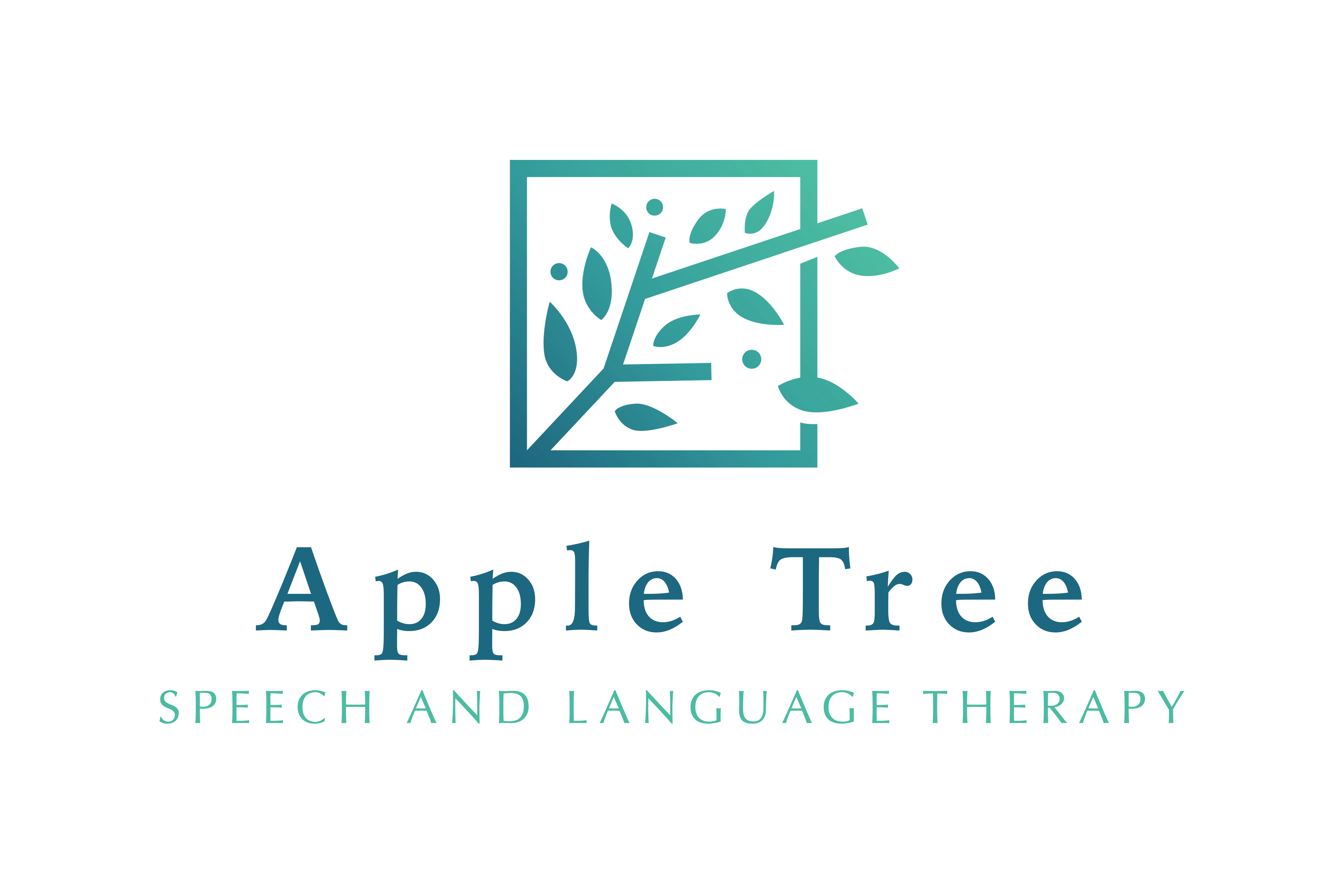
Who is Speech and Language Therapy for?
Apple Tree’s speech and language therapy service is for babies and children of any age with mild or severe speech and language difficulties. You may already have an understanding of your child’s speech and language difficulties, but the first place to start is with an assessment. If you’re unsure whether your child would benefit from an assessment, get in touch to find out more .
Does my child need speech and language therapy?
These are the areas where speech and language therapy can help:
- Starting to use first words
- Linking words together into sentences
- Concentrating and listening
- Following instructions and understanding what others say
- Learning and remembering words
- Producing speech sounds and making themselves understood
- Playing and interacting with others
- Confidence talking and reluctance to speak in certain situations
- Explaining their ideas or describing an event in complete sentences
- Using non-verbal communication eg. facial expressions/ eye contact/ intonation/ volume
- Understanding social situations and fitting in with daily routines and transitions at home or school
- Understanding and using complex language such as jokes, idioms and inferences.
- Nasal speech
- Stammering or dysfluent speech

Bilingual children
Many of the children we see hear more than one language at home. We work with parents to support children with speech and language difficulties within their own language and in English.
Disorders and diagnosis
At Apple Tree we support children based on their strengths and needs rather than purely on diagnosis. However, a diagnosis is often helpful for those who care for and work with children (and as they get older for children themselves) to gain a framework of understanding about their needs and to find appropriate resources and support. We will support families, who are seeking a diagnosis and advise on onward referrals to other professionals as appropriate. Get in touch if you would like to understand more about the process of getting a diagnosis.
The children we work with may have a specific speech and language condition such as:
Some children we work with may have a broader diagnosis such as:
- Speech or language delay
- Developmental language disorder
- Speech or phonological disorder
- Verbal dyspraxia
- Selective mutism
- Cleft lip and or palate including submucous cleft palate
- Stammering
- Autistic Spectrum Disorder
- Social Communication Disorder
- Asperger Syndrome
- Dyspraxia
- Pathological demand avoidance syndrome
- ADHD Attention deficit hyperactivity disorder
- Developmental delay or global delay or learning difficulties
- Down Syndrome
- Chromosome 22q11 deletion
- Cerebral palsy
- Epilepsy
- Sensory integration disorder
